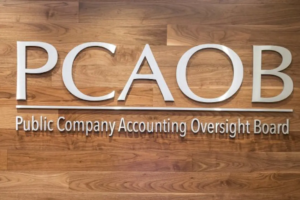
The PCAOB proposal would amend Rule 3502, Responsibility Not to Knowingly or Recklessly Contribute to Violations, by updating the threshold for liability from recklessness to negligence—allowing the PCAOB to hold auditors accountable for failing to exercise the same standard of reasonable care and competence they are already required to exercise anytime they are executing their professional duties.
The rule, originally enacted in 2005, governs the liability of associated persons who contribute to registered public accounting firms’ violations of the laws, rules, and standards that the PCAOB enforces.
“This proposal is simply updating PCAOB rules to match what investors already expect: that auditors act with reasonable care whenever they are performing their duties—and when an auditor’s negligence results in firm violations that can put investors at risk, the PCAOB has tools to hold them accountable,” said PCAOB Chair Erica Y. Williams.
Rule 3502’s purpose is to enable the Board to hold accountable associated persons of PCAOB-registered firms who directly and substantially contribute to violations committed by registered firms.
The PCAOB proposal intends to better protect investors with two key updates:
1. It strengthens accountability for those who put investors at risk by updating the threshold for liability.
Auditors are already required to exercise reasonable care anytime they perform an audit – and failure to do so constitutes “negligence.”
The current Rule 3502, however, only allows auditors to be held liable for firms’ violations when they “recklessly” contribute to those violations – which represents a greater departure from the standard of care than negligence. This means even when a firm commits a violation negligently, an associated person who directly and substantially contributed to the firm’s violation can be sanctioned only if the PCAOB shows that the associated person acted recklessly.
The proposal, if adopted, would update Rule 3502’s liability standard from recklessness to negligence, aligning it with the same standard of reasonable care auditors are already required to exercise anytime they are executing their professional duties. Similarly, the U.S. Securities and Exchange Commission already has the ability to bring enforcement actions against associated persons when they negligently cause firm violations.
The proposal maintains the requirement under the current version of Rule 3502 that an associated person must have contributed to the firm’s violation both “directly and substantially” in order to be held liable.
2. It clarifies the relationship between the contributory actor and the primary violator.
To be held liable under the current Rule 3502, an associated person who contributes to a firm’s violation must be an associated person of that particular firm. Given the increasing complexity of arrangements among firms and the constantly evolving nature of technology, the proposal clarifies that associated persons of any firm can be held liable as long as their conduct at least negligently, and directly and substantially, contributes to any firm’s violation, not just violations by a firm with which they are associated.
“It is important to understand, auditors are already required to exercise reasonable care or competence anytime they perform an audit—meaning they are prohibited from being negligent today,” said Chair Williams in a recent speech on the proposal. “Similarly, the U.S. Securities and Exchange Commission already has the ability to seek penalties in enforcement actions against associated persons when they negligently cause firm violations. So, there is no reason this proposal should cost auditors significant time, resources, or money,” she said.
Throughout the proposal, the Board requests comments on specific aspects of the proposed amendments. The deadline for public comment on the proposal is November 3, 2023. ![]()

